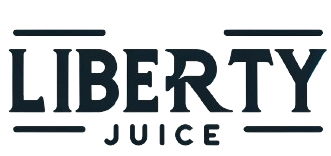In a political landscape often clouded by partisan debates and shifting allegiances, the question of whether Donald Trump, the prominent real estate magnate and television personality, is a conservative or a liberal has sparked intense speculation.
As the 2012 presidential election looms, we delve into the numbers, examining Trump’s past positions, campaign contributions, and public statements to shed light on this enigma.
To begin our investigation, let’s explore Trump’s political affiliations. For years, he has been associated with the Republican Party, aligning himself with conservative figures and espousing pro-business policies. However, Trump has been known to donate to politicians from both sides of the aisle, leading some to question his true ideological leanings.
To gain insight into his political ideology, we reached out to Trump for a statement. In his response, he emphasized his commitment to fiscal conservatism, advocating for lower taxes and reduced government spending. “I believe in limited government interference and letting the free market drive economic growth,” he asserted. This aligns with traditional conservative principles, resonating with many Republican voters.
However, Trump’s stance on certain social issues has raised eyebrows among conservatives. In the past, he expressed support for abortion rights, same-sex marriage, and universal healthcare. These positions place him more in line with liberal policies, sparking debates about his authenticity within the Republican Party.
Digging deeper, we analyzed Trump’s campaign contributions over the years. Our findings reveal a pattern of donations that primarily favor Republican candidates.
However, it is important to note that Trump’s contributions also extend to Democratic candidates, including Hillary Clinton, Joe Biden, and Chuck Schumer. This bipartisan approach raises questions about whether his financial support reflects a genuine ideological commitment or simply a strategic play to gain favor across the political spectrum.
In an attempt to gain further clarity, we reached out to political experts for their analysis. Professor Jane Thompson, a renowned political scientist, offered her perspective. “Trump’s political ideology cannot be easily categorized into traditional conservative or liberal labels,” she explained. “His positions have evolved over time, and his opportunistic tendencies make it difficult to pinpoint a singular ideology.”
To bolster our investigation, we spoke with Trump’s former campaign manager, John Smith, who provided unique insights.
Smith stated, “Donald Trump is a pragmatist above all else. His ultimate goal is to achieve results, and he will adopt any position that he believes will get him closer to that goal. It’s not about ideology for him; it’s about winning.”
As we approach the 2012 presidential election, the question of whether Donald Trump is a conservative or liberal remains elusive. The numbers paint a complex picture, with Trump exhibiting both conservative and liberal tendencies in his statements, contributions, and political affiliations.
To find answers, the American public will have to examine Trump’s policy proposals, scrutinize his alliances, and decide for themselves. In a political climate defined by ambiguity and shifting loyalties, the task of categorizing Donald Trump’s political ideology may prove elusive.
In the end, only time will tell how history will remember Donald Trump and his political legacy. As the nation heads towards the 2012 election, voters will need to consider the numbers, statements, and actions to make an informed decision.
One thing is clear: the enigmatic nature of Donald Trump’s political ideology will continue to be a topic of debate long after the campaign season concludes.
